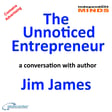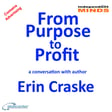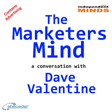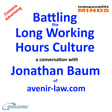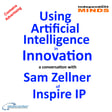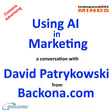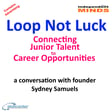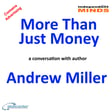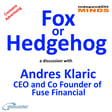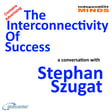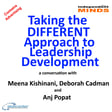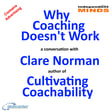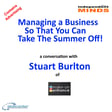
Understanding Business Agility - a conversation with Steve Martin
Steve Martin is an Enterprise Agile Coach.
In this episode of the Abeceder podcast The Independent Minds, Steve explains Business Agility to host Michael Millward.
Steve explains what business agility is by comparing different types of business. He explores with Michael the role that HR professionals and departments play in preparing a business to start on a business agility journey, guiding the business through, and sustaining the business agility approach.
They discuss what a business agile culture is like and what it feels like to work in an agile business for both employees and managers.
Steve explains what the role of the Scrum Master a new role that the business agility approach requires is and how it impacts the operation of a team and an organisation.
Michael asks Steve to explain what the entry of Gen Z to work will impact how a business agility approach can be implemented.
You can find out about events and webinars that Steve Martin is speaking at.
Find out more about both Michael Millward, and Steve Martin at Abeceder.co.uk
The Independent Minds is made on Zencastr, because as the all-in-one podcasting platform, on which you can create your podcast in one place and then distribute it to the major platforms, Zencastr really does make creating content so easy.
If you would like to try podcasting using Zencastr visit zencastr.com/pricing and use our offer code ABECEDER.
Travel
Linda is based in Texas USA. Members of the Ultimate Travel Club, can travel to Texas at trade prices on flights, hotels, trains, package holidays and all sorts of other travel purchases. You can become a member at a discounted price by using my offer code ABEC79 when you join-up.
Three the network
If you are listening to The Independent Minds on your smart phone, you may like to know that Three has the UK’s Fastest 5G Network with Unlimited Data, so listening on Three means you can wave goodbye to buffering.
Visit Three for information about business and personal telecom solutions from Three, and the special offers available when you quote my referral code WPFNUQHU.
Being a Guest
If you would like to be a guest on The Independent Minds, please contact using the link at Abeceder.co.uk.
We recommend that potential guests take one of the podcasting guest training programmes available from Work Place Learning Centre.
We appreciate every like, download, and subscriber.
Thank you for listening.
